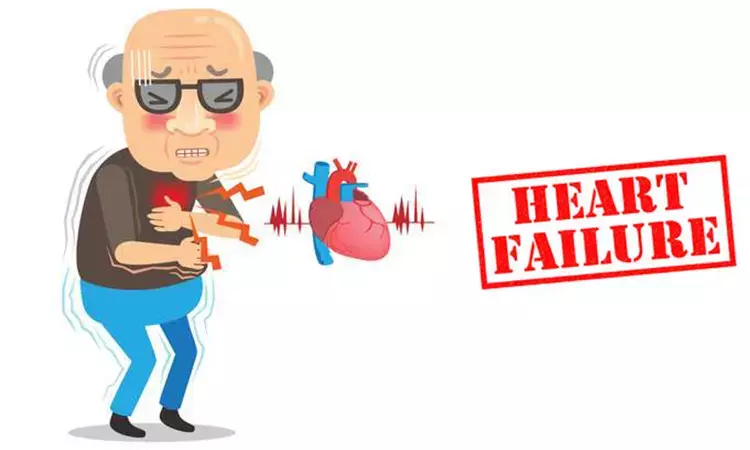- Home
- Medical news & Guidelines
- Anesthesiology
- Cardiology and CTVS
- Critical Care
- Dentistry
- Dermatology
- Diabetes and Endocrinology
- ENT
- Gastroenterology
- Medicine
- Nephrology
- Neurology
- Obstretics-Gynaecology
- Oncology
- Ophthalmology
- Orthopaedics
- Pediatrics-Neonatology
- Psychiatry
- Pulmonology
- Radiology
- Surgery
- Urology
- Laboratory Medicine
- Diet
- Nursing
- Paramedical
- Physiotherapy
- Health news
- Fact Check
- Bone Health Fact Check
- Brain Health Fact Check
- Cancer Related Fact Check
- Child Care Fact Check
- Dental and oral health fact check
- Diabetes and metabolic health fact check
- Diet and Nutrition Fact Check
- Eye and ENT Care Fact Check
- Fitness fact check
- Gut health fact check
- Heart health fact check
- Kidney health fact check
- Medical education fact check
- Men's health fact check
- Respiratory fact check
- Skin and hair care fact check
- Vaccine and Immunization fact check
- Women's health fact check
- AYUSH
- State News
- Andaman and Nicobar Islands
- Andhra Pradesh
- Arunachal Pradesh
- Assam
- Bihar
- Chandigarh
- Chattisgarh
- Dadra and Nagar Haveli
- Daman and Diu
- Delhi
- Goa
- Gujarat
- Haryana
- Himachal Pradesh
- Jammu & Kashmir
- Jharkhand
- Karnataka
- Kerala
- Ladakh
- Lakshadweep
- Madhya Pradesh
- Maharashtra
- Manipur
- Meghalaya
- Mizoram
- Nagaland
- Odisha
- Puducherry
- Punjab
- Rajasthan
- Sikkim
- Tamil Nadu
- Telangana
- Tripura
- Uttar Pradesh
- Uttrakhand
- West Bengal
- Medical Education
- Industry
Dapagliflozin quickly lowers risk of heart failure and associated CVA: JAMA

In a recent study , research has put forth that treatment with dapagliflozin was associated with rapid reduction in the risk of cardiovascular death or worsening HF, with a sustained statistically significant benefit emerging very early after randomization.
Furtherr, it was noted that patients with a more recent HF hospitalization were at particularly high risk and experienced greater relative and absolute risk reductions with dapagliflozin.The findings have been published in JAMA Cardiology.
The effects of dapagliflozin ,a SGLT2 inhibitor, on myocardial metabolism, ion transporters, fibrosis, adipokines, and vascular function have also been proposed.These actions, along with preservation of renal function, would also benefit patients with established heart failure. There has been a limited exposure on the efficacy of this drug in such patients.
Researchers undertook the present study to examine timing of onset of clinical benefit with dapagliflozin and magnitude as a function of proximity to prior HF hospitalization.
The study design was a secondary analysis of a completed multinational trial. The Dapagliflozin and Prevention of Adverse-Outcomes in Heart Failure trial was a double-blind, placebo-controlled randomized clinical trial of dapagliflozin in patients with chronic HFrEF (n = 4744). From February 2017 to August 2018, the study enrolled patients in New York Heart Association classes II through IV and with left ventricular ejection fraction of 40% or less; the median (range) follow-up time was 18.2 (0-27.8) months. Hazard ratios (HRs) were calculated for the primary efficacy outcome with dapagliflozin vs placebo by time following randomization. Efficacy and safety of dapagliflozin were assessed according to the timing of the most recent HF hospitalization prior to trial enrollment.
Data analysis revealed the following facts.
· A total of 4744 patients were included (1109 women [23.4%]; mean [SD] age, 66.3 [10.9] years).
· The reduction in the primary outcome with dapagliflozin was rapidly apparent, with a sustained statistically significant benefit by 28 days after randomization (HR at 28 days, 0.51 [95% CI, 0.28-0.94]; P = .03).
· A total of 2251 patients (47.4%) had been previously hospitalized for HF, and 1301 (27.4%) had been hospitalized within 12 months prior to enrollment.
· Among patients treated with placebo, there was a stepwise gradient of risk for the primary outcome according to timing of most recent HF hospitalization, with 2-year Kaplan-Meier rates of 21.1%, 25.3%, and 33.8% (adjusted P = .003) for patients with a prior HF hospitalization never, more than 12 months ago, and 12 or fewer months ago, respectively.
· Across these subgroups, dapagliflozin reduced the relative risk of the primary outcome by 16% (HR, 0.84 [95% CI, 0.69-1.01]), 27% (HR, 0.73 [95% CI, 0.54-0.99]), and 36% (HR, 0.64 [95% CI, 0.51-0.80]), respectively (P = .07 for trend).
· Accordingly, patients with a more recent HF hospitalization tended to experience greater absolute risk reductions with dapagliflozin at 2 years: 2.1% (95% CI, -1.9% to 6.1%), 4.1% (95% CI, -3.6% to 11.7%), and 9.9% (95% CI, 3.3%-16.5%), respectively (P = .05 for trend).
For the full article follow the link: 10.1001/jamacardio.2020.7585
Primary source: JAMA Cardiology
Dr Satabdi Saha (BDS, MDS) is a practicing pediatric dentist with a keen interest in new medical researches and updates. She has completed her BDS from North Bengal Dental College ,Darjeeling. Then she went on to secure an ALL INDIA NEET PG rank and completed her MDS from the first dental college in the country – Dr R. Ahmed Dental College and Hospital. She is currently attached to The Marwari Relief Society Hospital as a consultant along with private practice of 2 years. She has published scientific papers in national and international journals. Her strong passion of sharing knowledge with the medical fraternity has motivated her to be a part of Medical Dialogues.
Dr Kamal Kant Kohli-MBBS, DTCD- a chest specialist with more than 30 years of practice and a flair for writing clinical articles, Dr Kamal Kant Kohli joined Medical Dialogues as a Chief Editor of Medical News. Besides writing articles, as an editor, he proofreads and verifies all the medical content published on Medical Dialogues including those coming from journals, studies,medical conferences,guidelines etc. Email: drkohli@medicaldialogues.in. Contact no. 011-43720751


